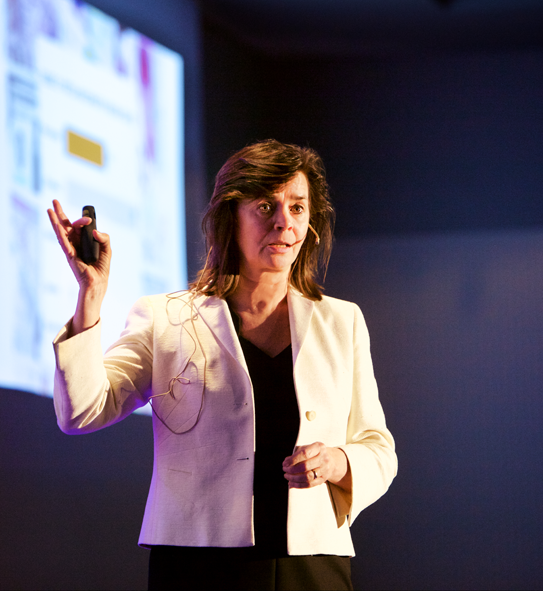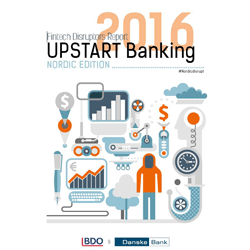March 2, 2016
In
Business
By
administrator
The blockchain shows how our understanding of transactional trust, conferred by human third party process for centuries, could be transformed by an automated system. Affording greater transparency and encouraging greater participation in the financial system on a global scale.

Leanne Kemp, chief executive of Everledger
We caught up with Leanne Kemp, CEO of London based startup Everledger, which is applying blockchain technology to authenticate ownership of diamonds. A system the company hopes can help stem the flow of blood diamonds by verifying that stones on the market comply with industry
standards of provenance.
What is your view on the blockchain technology and its future potential?
It was only a quarter of a century ago that Sir Tim Berners-Lee created the WorldWideWeb and changed the world forever, giving access to communication and content globally. The blockchain represents an opportunity to re-think legacy systems that for the most part have been taken for granted as the way things must be done, rather than what could be done. It provides a
tectonic plate shift in the way we conduct commerce between parties and our future expectations of transparency around transactions and objects: an ideal way to ensure transparency and integrity when two parties in business don’t trust each other.
The blockchain is suited to recording and understanding an object’s reputation by providing a chain-of-custody record of provenance. Arguably, the future potential is quite possibly limitless, particularly in the areas where we are focusing at Everledger: using a global, distributed ledger that cannot be tampered with as a compliment to traditional methods of recording information, all of which have been shown to be vulnerable.
What does the opportunity for blockchain innovation look like in different parts of the market?
It can – indeed it will – transform the way information is stored, shared and verified. Let’s look at the potential of smart contracts as an example. Transactions that pass through multiple intermediaries and countries adding time and cost to the process are, through the blockchain, designed to be self-executing and self-enforcing because the interaction is solely betwe
en the parties.
Another example: even though many diamond-fueled wars have ended in Africa, conflict diamonds remain a serious problem. Everledger supports a system of warranties that enable mining companies to verify that their rough stones adhere to the Kimberley Process. The provenance of these diamonds, from legitimate sources, is then easily accessed by governments – and consumers – offering them the transparency they demand & rightfully deserve. Increased use of the blockchain will increase consumer confidence; enable the implementation of a system of frictionless duties and taxes; and bring about a reduction of fraud and financial risk.
Do you expect that the Everledger product will evolve for new customer segments outside of fraud prevention/insurance?
Yes. Our focus on decreasing fraud and risk for insurance companies is one element of our business. We work in cryptographic certification from the source of a valuable item through to its purchase. We started with the major certification houses who create the diamond’s ‘digital fingerprint’ by recording the 4cs and over 40 meta data points in the Everledger digital vault. In the six months since we began, there are already over 850,000 diamonds stored. We also partner with mining companies in Africa, whom we support with a cryptographic certification to prove their stones are not conflict diamonds so they comply with the Kimberly Process. Our relationships with jewellery retailers allow their customers to have instant verification of the value and authenticity of their purchase. And, of course, we have more planned for our future with other articles that face similar industry challenges and social impact globally.
What challenges are you envisaging in terms of maturity and adoption of the technology by the industry?
We recently won a Meffys Award for FinTech Innovation. It was a great honour to be recognised by the Mobile Ecosystem Forum because we are the first blockchain company to be chosen. It’s just the start for the technology and, as with others breakthroughs that affect regulations, business systems and human behaviour, adoption will take time. We’re seeing global leaders in technology, like IBM and MIT, turn their focus to developing platform initiatives – even as an open source environment. In finance, 25 banks are now part of the R3 blockchain consortium working to determine a framework for using blockchain technology in markets. This is progress, but there are challenges such as the legacy of ‘bitcoin anxiety’ and the need to increase the number of non-tech people who understand and embrace its potential for their business.
During 2016-2020, many businesses and industries, including insurance, will face a pivotal moment. The need to experiment, adapt and implement emerging technologies like the blockchain is considered by many to contain some of the greatest change agents since the introduction of the Internet. Adoption of these new technologies is accelerating toward the tipping point. There will be game-changing breakthroughs that will challenge businesses in many ways. Change and disruption are upon us.







